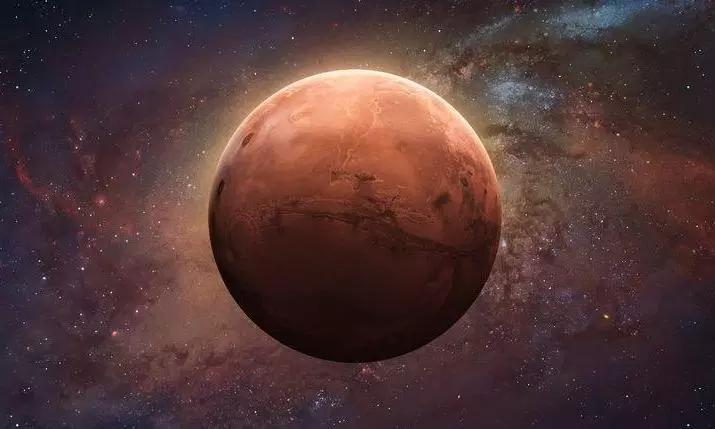
Evidence suggests Mars may have been habitable once!!!
text_fieldsGetty Images (representational).
Sydney: Researchers from Australia found evidence suggesting that Mars may have once been habitable. This is after they discovered the oldest direct evidence of hot water activity on the Red Planet, IANS reported.
In a study published on Saturday, a team led by researchers from Curtin University in Western Australia analyzed a 4.45 billion-year-old zircon grain from the famous Martian meteorite NWA7034, also known as Black Beauty, that was found in the Sahara Desert in 2011.
The researchers found that the grain of zircon, a type of mineral, contained geochemical fingerprints of water-rich fluids, suggesting that water was present during early Martian magmatic activity.
Aaron Cavosie, a co-author of the study from Curtin's School of Earth and Planetary Sciences, said that the discovery would open up new avenues for understanding ancient Martian hydrothermal systems, as well as the planet's past capacity to support life.
"We used nano-scale geochemistry to detect elemental evidence of hot water on Mars 4.45 billion years ago," he said, Xinhua news agency reported.
"Hydrothermal systems were essential for the development of life on Earth, and our findings suggest Mars also had water, a key ingredient for habitable environments, during the earliest history of crust formation."
He said that even though Mars' crust endured major meteorite impacts that caused surface upheaval, the research shows that water was present on the planet during the early Pre-Noachian period prior to about 4.1 billion years ago.
The study also involved researchers from the University of Adelaide and was led by Jack Gillespie, a former research associate at Curtin's School of Earth and Planetary Sciences, now at the University of Lausanne in Switzerland.






















